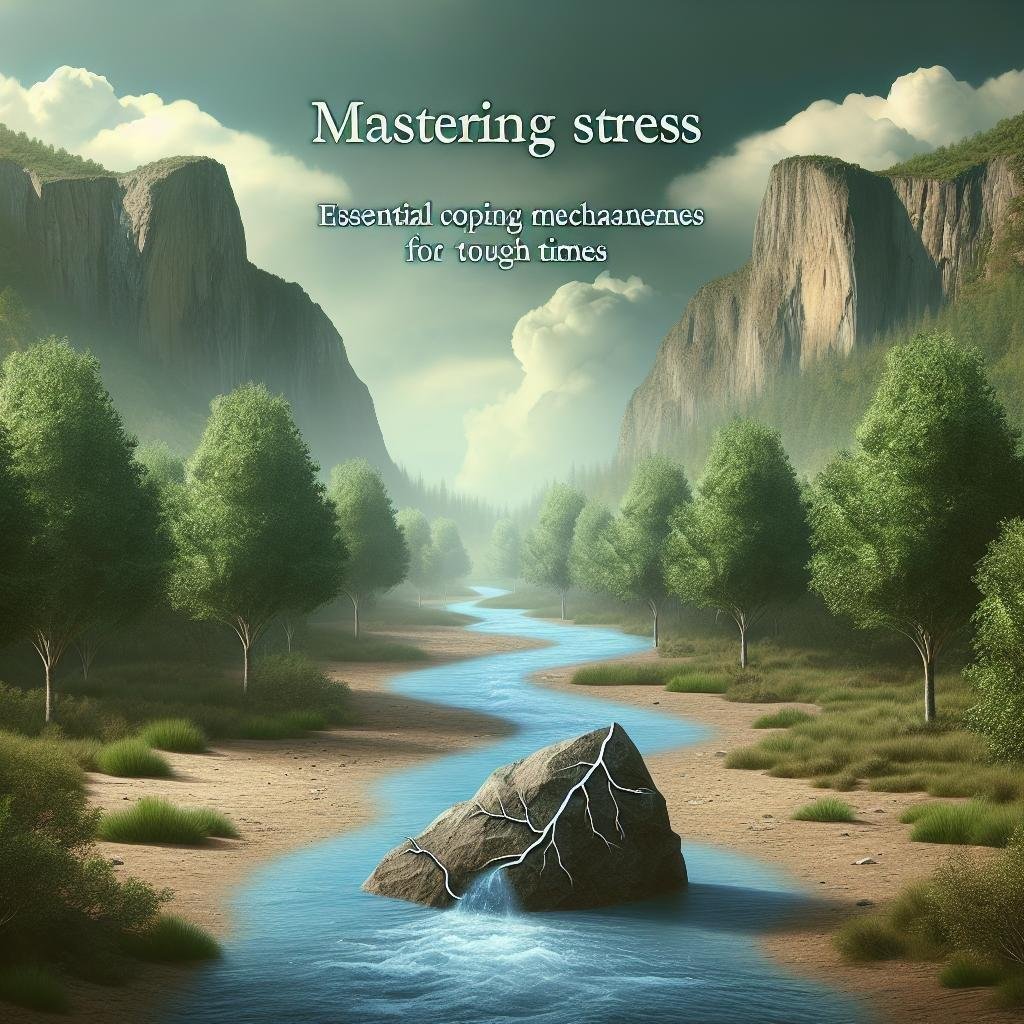In today’s fast-paced world, stress has become an almost omnipresent companion in our lives. Whether it stems from work pressures, personal challenges, or global uncertainties, the weight of stress can be overwhelming, leading to a myriad of physical and emotional consequences. As we navigate through these tough times, it is essential to equip ourselves with effective coping mechanisms that empower us not just to survive, but to thrive. In this article, we will explore practical strategies and foundational techniques for mastering stress, providing you with the tools to reclaim your peace of mind and foster resilience. Join us as we delve into the essential practices that can help you manage stress effectively, ensuring that you emerge stronger and more centered, no matter the circumstances you face.
Table of Contents
- Understanding the Science of Stress and Its Impact on Mental Health
- Identifying Your Personal Stress Triggers and Responses
- Effective Techniques for Immediate Stress Relief
- Building Long-Term Resilience Through Mindfulness and Self-Care Practices
- In Conclusion
Understanding the Science of Stress and Its Impact on Mental Health
Stress is a natural physiological response that often arises during challenging situations. It triggers the release of hormones such as cortisol and adrenaline, preparing the body to face immediate challenges. However, when stress becomes chronic, it can have significant repercussions on mental health. Prolonged stress affects cognitive functions and emotional regulation, leading to increased anxiety, depression, and feelings of overwhelm. Understanding this link between stress and mental health is crucial for developing effective coping mechanisms that can help individuals navigate through tough times.
To manage stress effectively, it’s important to adopt various strategies that promote mental well-being. Here are some essential coping mechanisms:
- Mindfulness and Meditation: Practicing mindfulness can help ground individuals in the present moment, reducing anxiety and stress.
- Physical Activity: Engaging in regular exercise boosts endorphins and helps clear the mind.
- Social Support: Connecting with friends and family provides emotional support and alleviates isolation.
- Time Management: Organizing tasks can help reduce feelings of being overwhelmed by making workloads more manageable.
Identifying Your Personal Stress Triggers and Responses
Understanding what causes stress in your life is the first step in managing it effectively. Personal stress triggers can vary greatly from person to person and may include factors such as work deadlines, family responsibilities, or even social situations. To pinpoint your own triggers, consider keeping a stress diary where you note the situations that lead to stress alongside your emotional and physical responses. This practice can reveal patterns that are otherwise difficult to recognize, allowing you to anticipate and prepare for high-stress scenarios. Here are some common triggers to be aware of:
- Work-related pressures
- Interpersonal conflicts
- Financial concerns
- Health issues
- Major life changes
Recognizing your responses to stress is equally important. Different individuals react to stress in various ways, and understanding your unique responses can help you develop effective coping mechanisms. Some might experience physical symptoms like headaches or fatigue, while others may notice changes in mood or sleep patterns. Conducting a self-assessment can be useful; consider creating a table to track these responses whenever you encounter stress:
| Response Type | Description |
|---|---|
| Physical | Tight muscles, headaches, fatigue |
| Emotional | Anxiety, irritability, mood swings |
| Cognitive | Difficulty concentrating, racing thoughts |
| Behavioral | Changes in appetite, increased use of substances |
Effective Techniques for Immediate Stress Relief
When stress strikes, having a range of practical techniques at your disposal can make all the difference. One highly effective method is deep breathing. Taking a few moments to focus on your breath can help center your mind and reduce anxiety. Try inhaling deeply through your nose for a count of four, holding for four, and exhaling slowly through your mouth for another count of four. This simple exercise promotes relaxation and can be done anywhere, anytime, making it an invaluable tool for immediate stress relief.
Another powerful technique is mindfulness meditation. This practice encourages you to bring your attention to the present moment, helping to break the cycle of negative thoughts that often accompany stress. Find a quiet space, close your eyes, and focus on the sensations in your body or the rhythm of your breath. In addition, consider integrating physical activities such as taking a walk or stretching into your routine. These activities not only release endorphins but also shift your focus away from stressors. Below are some quick and effective strategies to incorporate into your daily life:
| Technique | Duration | Effects |
| Deep Breathing | 5 minutes | Reduces anxiety and promotes relaxation |
| Mindfulness Meditation | 10 minutes | Enhances focus and emotional regulation |
| Walking | 15 minutes | Boosts mood and clears the mind |
| Stretching | 5-10 minutes | Reduces tension and increases flexibility |
Building Long-Term Resilience Through Mindfulness and Self-Care Practices
In today’s fast-paced world, cultivating resilience through practices like mindfulness and self-care is not just beneficial but essential. Mindfulness encourages us to stay present, allowing us to observe our thoughts and feelings without judgment. This practice has been shown to reduce stress and anxiety, enabling us to respond to challenges with a clearer mindset. Key techniques that can enhance your mindfulness journey include:
- Daily meditation: Setting aside even a few minutes each day can significantly improve your mental clarity and emotional health.
- Gratitude journaling: Documenting what you are thankful for each day helps shift your focus from stressors to positive aspects of life.
- Breathing exercises: Simple techniques can help ground you in tense situations, lowering cortisol levels and promoting calm.
Alongside mindfulness, self-care is vital for building the resilience needed to face life’s challenges. Engaging in activities that nurture your body and soul can replenish your energy and boost your overall well-being. Consider incorporating the following self-care habits into your routine:
| Self-Care Habit | Benefit |
|---|---|
| Exercise | Boosts mood and reduces anxiety |
| Healthy eating | Enhances energy levels and mental clarity |
| Quality sleep | Improves resilience and cognitive function |
By weaving mindfulness and self-care into the fabric of your everyday life, you strengthen your ability to handle stress with grace and stability. These practices not only help you cope with the pressures of life but also empower you to create a sustainable foundation of mental and emotional health that can weather any storm.
In Conclusion
As we navigate the complexities of everyday life, mastering stress becomes an essential skill, not just a fleeting goal. The coping mechanisms we’ve explored—ranging from mindfulness practices to the cultivation of a supportive social network—are tools you can incorporate into your daily routine to foster resilience. Remember, it’s not about eliminating stress entirely, but rather about managing it wisely and effectively.
As you implement these strategies, be patient with yourself. Change takes time, and each small step you take towards understanding and controlling your stress can lead to significant improvements in your overall well-being. Whether you’re facing a demanding job, personal challenges, or the uncertainties of life, know that you have the power to influence your response to stress.
If you feel overwhelmed, it’s essential to reach out for professional support. Sometimes, the best way to cope is to share the burden with someone trained to help. Always prioritize your mental health, and remember: you are not alone in this journey. By committing to mastering these coping mechanisms, you are not just surviving tough times but also paving the way for a more balanced and fulfilling life. Stay resilient, stay hopeful, and take care of yourself.





